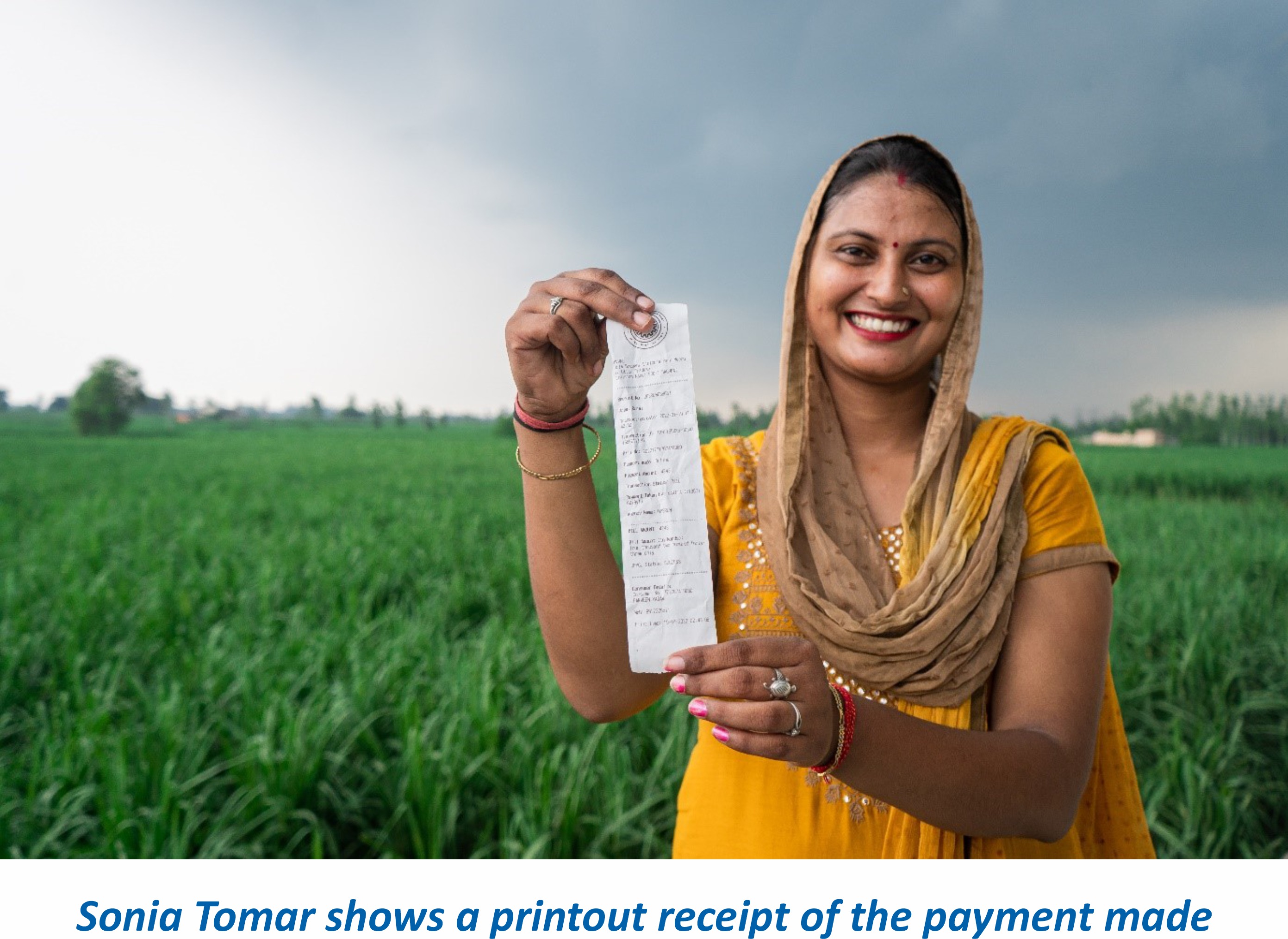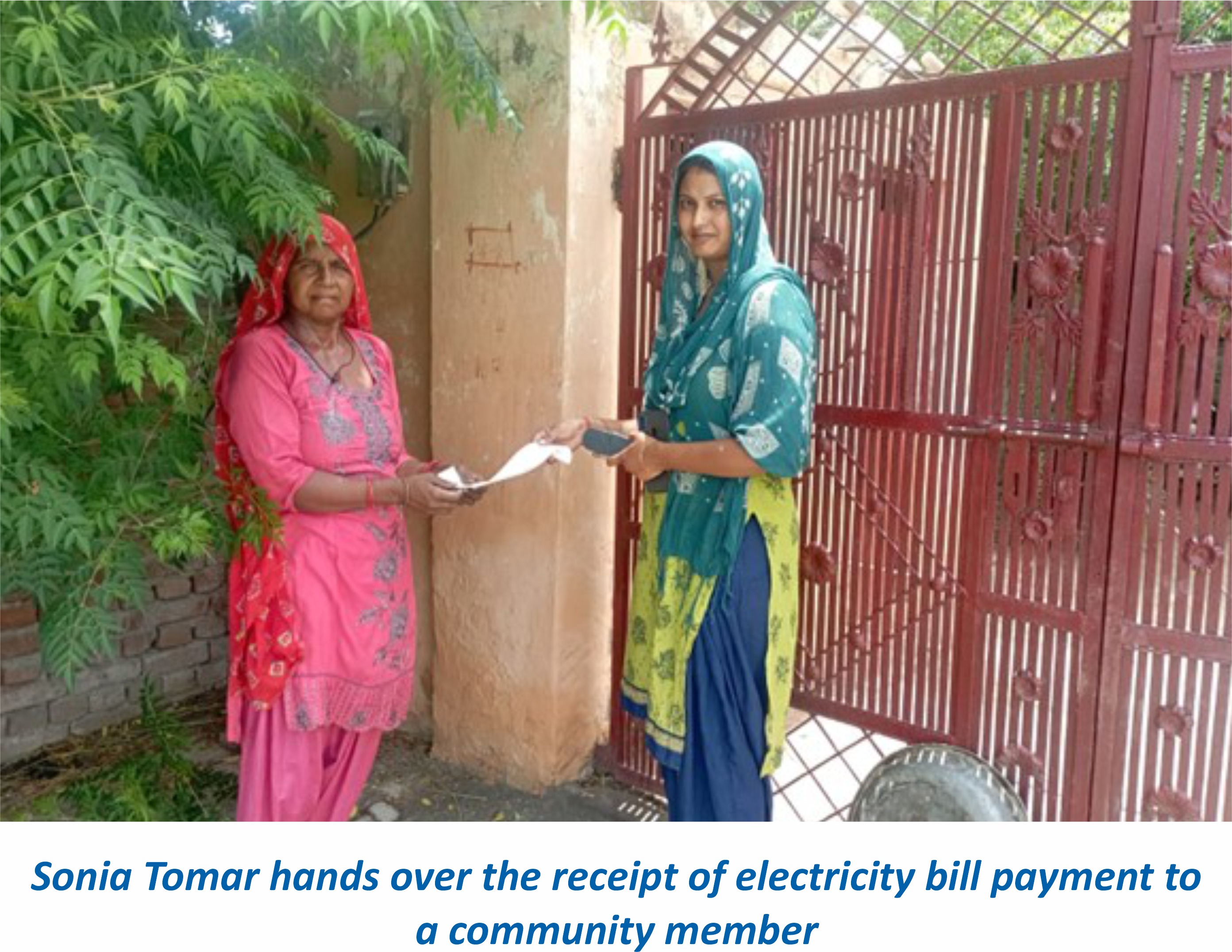|
Sonia Tomar, a mother of two children, belongs to Modinagar town of Ghaziabad district, Uttar Pradesh. In 2017, at the age of 22, she got married to Shiv Kumar and shifted to Nangli Ajar, a village in Daurala block in Meerut district, adjacent to Ghaziabad. In Modinagar, her hometown, Sonia, who studied till Class 12, used to work in the administrative division of a public school. She was responsible for the collection of school fees from students. Moreover, she used to give tuition to a group of 30 students of varying age groups. After marriage, she continued to provide tuition to students in Nangli Ajar. She had an income of ₹3,000, which was not enough for her. While her husband worked in a private company in Gurgaon, she had aspirations to become independent. She wanted to save money to ensure proper education for her children. She started working as a ‘Vidyut Sakhi’ to earn additional income.
She remembers her first day in November 2021: a camp was set up in her village and she attended it. That day, she was able to collect bills worth ₹16,661. She has come a long way since then, as she has collected over ₹73 lakh in June 2022 itself with the highest one-day collection of ₹4,36,000. However, this journey has not been an easy one.
When Sonia had just started working as a Vidyut Sakhi, she used to struggle in navigating the smartphone application through which bills are paid. In the initial stages, she ended up paying more from her pocket than what she was able to collect. Not only that, she did not get support from her family, from the community, and not even from the electricity department in those days. Her family disapproved of her leaving her two young kids alone at home to collect bills. Without the support of her in-laws, she also had no means of travelling about 15 kilometres daily, as her husband lived in Gurgaon, Haryana.
Today, she has overcome these challenges and made considerable progress. She solved the problem of excess payments by taking a loan from the SHG to make payments. Furthermore, since June 2022 with support from Technology and Action for Rural Advancement (TARA), she has been able to gain the trust of the community and become more confident. TARA’s in collaboration with CRISIL Infrastructure Advisory under the Uttar Pradesh Power Distribution Network Rehabilitation Project, funded by Asian Development Bank, is supporting self-help group (SHG) women as bill collection agents. With our help, she now sits at the divisional office of the electricity department where people from the community come to get their electricity bills paid through her. At her home, her sister-in-law has been instrumental in encouraging her and taking care of her children so that she can go out, earn, and provide quality education to her children.
Vyapika Kapoor |
 Sonia
became a
Sonia
became a
 The community also undermined her work and
efforts as they had never seen a woman collecting electricity bill
payments. People in the village trusted neither Sonia nor the receipts
she printed and gave them. They preferred the invoice they received from
the electricity department. Moreover, the electricity department also
did not come to her aid. Apart from this, she also faced logistical
problems in the initial phase such as that of mobility and of depositing
the amounts collected in the bank.
The community also undermined her work and
efforts as they had never seen a woman collecting electricity bill
payments. People in the village trusted neither Sonia nor the receipts
she printed and gave them. They preferred the invoice they received from
the electricity department. Moreover, the electricity department also
did not come to her aid. Apart from this, she also faced logistical
problems in the initial phase such as that of mobility and of depositing
the amounts collected in the bank.